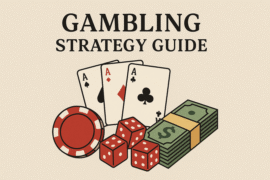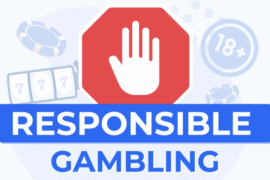This article may contain references to products or services from one or more of our advertisers or partners. We may receive compensation when you click on links to those products or services. Nonetheless, our opinions are our own.
The information presented in this article is accurate to the best of our knowledge at the time of publication. However, information is subject to change, and no guarantees are made about the continued accuracy or completeness of this content after its publication date.

Updated by Albert Fang
When it comes to you and your money, you can either choose to control it or you’ll be controlled by it. The latter means debt, always struggling to make ends meet and never knowing how to maximize the funds that you do have. Mastering your finances is not something you can do overnight, but it’s probably easier than you think.
Know What You Have
The first thing you must do is know how much you have and what you’re doing with it. You should also look at your overall net worth and your debts, and you need to make a budget. You can get help from apps in creating the budget, but you should watch out for a couple of common budgeting errors. One is forgetting about occasional expenses. These are things you do somewhat regularly but not that often, like getting your clothes dry cleaned or getting a haircut, or things that only happen once a year or so, like birthdays or vacations. The other error is an overly ambitious budget that doesn’t leave you any room for miscellaneous expenses or fun.
Get Rid of Your Debt
Your next step should be to get rid of your debt. The exception to this is your mortgage since it can be advantageous to pay this off more slowly. Do some research to decide what you want to do about that, but the rest of your what you owe should be paid off as quickly as possible. You can do this by putting your debts in order starting with the lowest balance or highest interest rate and focusing most of your payments on one debt at a time. You could also look into selling something that you own if it gives you a lump sum that will allow you to pay a lot off at once. As an example, you might be able to sell your life insurance policy for cash. You can review a guide about how to go about this to help you understand whether you can count on the proceeds as you make a plan to attack your debt.
Save For an Emergency
There’s no point in paying off what you owe if you’re going to drop right back into debt the next time you have to pay for a major car repair, so you should also be building an emergency fund that you keep in a savings account or another vehicle you can easily access. It is a common debt myth that you are in the clear simply from paying off a card, especially if you continue to use it to excess regularly. People usually aim to have three to six months of expenses in this account, but you can have more if you prefer.
Other Savings
You should be maximizing your retirement contributions. Beyond this, your savings should largely reflect your values and goals. You might be putting away money for a down payment on a house, for your child’s college education or for a dream trip around the world. An easy way to save is to have the money automatically deposited into a separate account. As long as you can afford to take risks, you might want to move some of it into potentially higher yield investments to see if you can make more from it.

Reviewed and edited by Albert Fang.
See a typo or want to suggest an edit/revision to the content? Use the contact us form to provide feedback.
At FangWallet, we value editorial integrity and open collaboration in curating quality content for readers to enjoy. Much appreciated for the assist.
Did you like our article and find it insightful? We encourage sharing the article link with family and friends to benefit as well - better yet, sharing on social media. Thank you for the support! 🍉
Article Title: Follow These Steps to Master Your Finances
https://fangwallet.com/2021/09/22/follow-these-steps-to-master-your-finances/The FangWallet Promise
FangWallet is an editorially independent resource - founded on breaking down challenging financial concepts for anyone to understand since 2014. While we adhere to editorial integrity, note that this post may contain references to products from our partners.
The FangWallet promise is always to have your best interest in mind and be transparent and honest about the financial picture.
Become an Insider

Subscribe to get a free daily budget planner printable to help get your money on track!
Make passive money the right way. No spam.
Editorial Disclaimer: The editorial content on this page is not provided by any of the companies mentioned. The opinions expressed here are the author's alone.
The content of this website is for informational purposes only and does not represent investment advice, or an offer or solicitation to buy or sell any security, investment, or product. Investors are encouraged to do their own due diligence, and, if necessary, consult professional advising before making any investment decisions. Investing involves a high degree of risk, and financial losses may occur including the potential loss of principal.
Source Citation References:
+ Inspo












































